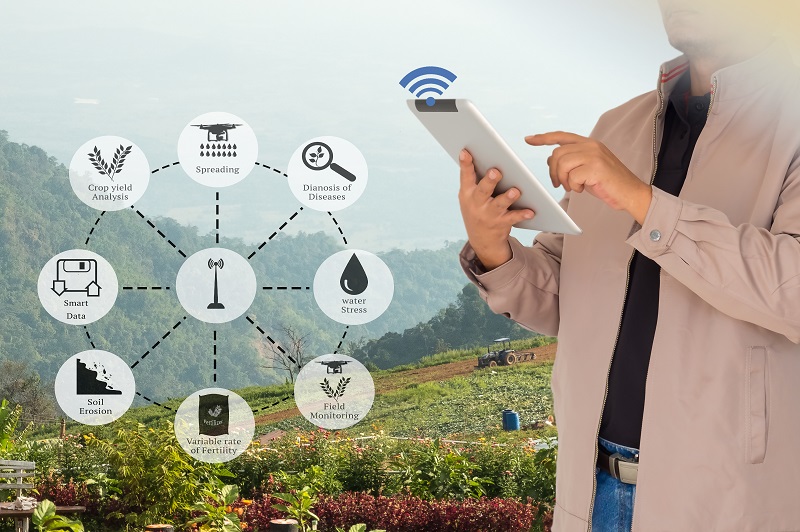Insecticides In 2014: A Wild Ride For Ag Retailers
This past year proved somewhat of a roller-coaster ride for insecticide products in the domestic ag retail marketplace. First came a plummet in overall sales: In our annual CropLife 100 ag retail survey, 31% of retailers reported insecticide sales as down for the year, while another 24% reported the segment as having flat sales at their retail establishment.
Then, piling on the segment a bit, back in October, EPA’s Biological and Economic Analysis Division issued a report proclaiming that seed-coating applications of neonicotinoid insecticides “provide negligible overall benefits” in growing soy crops. While an industry coalition including Syngenta, Bayer CropScience and Valent U.S.A. quickly formed to attempt to dispel the research as flawed, the damage had already been done, at least as far as the general public was concerned.
Soon enough, however, the segment saw a faint light at the end of the tunnel. A November 2014 report from Louisiana State University Entomologist Fangneng Huang confirmed Bt trait resistance (specifically the Cry1F protein found in Dow AgroSciences and DuPont traited seed) to fall armyworm, signaling the likely end of relying solely on the trait for control in corn, as well as signaling a need for new modes of action or different management strategies (mid-season foliar insecticide applications) that could turn out a boon for insecticide sales in the coming season.
Making A Play
Another buzz worthy development in the insecticide market this past year was Valent U.S.A.’s aggressive activity. The crop protection company signed an agreement in October 2014 to manage the marketing and sales of MGK’s crop protection line of insect control products within the U.S., beginning on April 1.
Then on December 3, 2014, Valent U.S.A.’s parent company, Japan-based Sumitomo Chemical, announced that it had acquired DuPont Crop Protection’s Asana brand insecticide. Asana (esfenvalerate) is labeled for use in over 50 crops and will be distributed through Valent U.S.A.’s distribution network.
According to Kevin Hammill, Valent U.S.A. vice president of ag operations and strategy, the Asana brand was a perfect fit with the current Valent portfolio.
“Asana is a good addition to our existing crop protection product mix,” he says.
“For Valent retailers and distributors, the experience will be positive. Asana will be available in the same markets for the same crops in which it has previously been sold. Distributors will simply purchase Asana through their Valent U.S.A. representative.”
Hammill also says the MGK marketing agreement was primarily about diversifying Valent’s offerings further.
“The breadth of the MGK portfolio creates a mix of tools that growers can use in integrated pest management strategies,” says Hammill. “We anticipate this will benefit retailers by knowing their Valent U.S.A. sales representatives will be able to provide them more crop protection solutions. Our partnership in the U.S. market realizes the synergies in our portfolio and creates a diverse offering of biorationals and organic solutions for growers. Valent will begin sales and marketing of Azera, PyGanic, Tersus, Veratran D and EverGreen in April 2015.
The Valent play for MGK, as well as the acquisition of Asana, also has implications in organic farming, according to Hammill.
“Our recent acquisition of the MGK insecticide portfolio, in addition to Asana, illustrates our commitment to offering our retailers and distributors a rich portfolio of chemistries to serve the farming community, from organic through commodity production systems,” he says. “We will continue to seek products that align with our mission of offering innovative biorationals, as well as conventional, solutions that deliver proven results. The variety of tools we offer help our customers grow more profitable crops and maintain healthy green spaces, forests and waterways.”
Going forward, Hammill reports, Valent U.S.A. has a broad line of products in development with various launch dates from 2015 through 2020, and beyond.
New Products
While 2014 was all-things-considered a rather slow year for new innovations in insect control, ADAMA (formerly MANA Crop Protection) launched its new NIMITZ nematicide with EPA-approval back in September.
ADAMA claims the new nematicide active (Fluensulfone) to have simplified application features and unmatched user safety, and the U.S. was the first country to receive federal registration with label approval for cucurbits and fruiting vegetables.
“NIMITZ is the nematicide that growers have been waiting for,” said Herb Young, ADAMA brand leader, in a press release. “It is highly effective in controlling plant-parasitic nematodes. It also has a ‘caution’ signal word which has never existed until now for a chemical nematicide. No other nematicide in the U.S.A. currently has this same mode of action or classification.”
And this little nugget should also make applicators happy: ADAMA claims NIMITZ represents a “new paradigm for nematode control” by eliminating the stringent use requirements of fumigant nematicides including Fumigant Management Plans, re-entry intervals, 24-hour field monitoring and restrictive buffer zones.
Additionally, DuPont Crop Protection’s Prevathon (RynaXypyr) received EPA label expansion back in August 2014, getting approval for foliar applications of the insecticide on dry bean crops. According to the company, prevathon provides control against lepidopteran worms, including fall armyworm, beet armyworm, corn earworm and European corn borer, as well as leafminer larvae.






